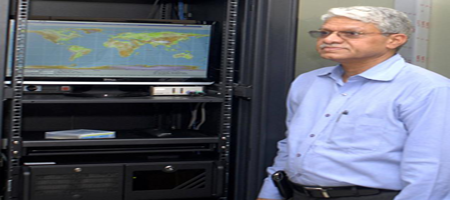Meteorology
The science that studies and deals about the phenomena of the layers of the atmosphere, especially weather, climate and weather related trends and diverse conditions is purely known as Meteorology. Experts of this field are called as Meteorologists. They can ably forecast the weather rely on thousands of weather stations located around the world, both on land and at sea. Measurements on each station are taken of air pressure and temperature, wind speed, cloud cover, and precipitation. All of the gathered information is send to the national weather centers where it is plotted on charts and analyzed by veteran meteorologists. This process, called a forecast or what the weather will be, is then sent to the public by newspapers, radio and television.
Key to Success
To be successful in Meteorology you should have/ develop:
- Perceptive and probing mind
- Curious about the world around
- Open to change
- Keen observation
- Interest in mathematics and science
- Analytical & Logical thinking
Scope and Opportunities
A meteorology degree qualifies an individual to work in many weather-related jobs. One can get better opportunities for overseas assignment to military bases and outposts across the globe.
The weather conditions play a vital role for the launching of the satellite thus a meteorologist has options open in the space centers. The Indian meteorological department has its branches all over India, hence meteorologists are absorbed there.
Lifestyle & Social Status
- Mostly in-house job
- Field work sometimes may require travel to remote and less developed areas
- It’s a secure job
Job Profile
Meteorologists work on atmospheric research, teaching, weather forecasting, and other kinds of applied meteorology.
A meteorologist’s work falls into two main categories:
- Forecasting
- Research.
In weather forecasting, typical work activities involve:
- Collecting data from satellite images, radar, remote sensors and weather stations all over the world;
- Measuring factors such as air pressure, temperature and humidity at various atmospheric levels;
- Analysing and presenting this information to customers in the form of weather briefings;
- Coding weather reports for transmission over international networks;
- Applying physical and mathematical relationships and sophisticated computer models to make short and long-range weather forecasts;
- Liaising with colleagues and clients from around the country and worldwide.
In research, typical work activities include:
- Investigating subjects such as: airflow in the lowest kilometer of the atmosphere; the physics of clouds and precipitation; global climate change;
- Developing and improving numerical and computer models to predict atmospheric processes and improve the accuracy of forecasts;
- Monitoring climate variability and change;
- Researching seasonal forecasting, ocean forecasting and climate prediction;
- Monitoring and investigating changes in the stratosphere (10-50km above the Earth), including the ozone layer;
- Applying the results of research in order, for example, to give flood warnings or estimate the likely effects of global warming.
Research
Atmospheric science education studies the global effects on local atmosphere as this is the most challenging part for all scientists. They also study the variations of the Indian monsoon.
Skill Sets
- Communication Skills
- Computer Skills
- Analytical Skills
- Logical Skills
Work Value
- Travelling
- Work independently
- Adaptability/Flexibility
- Learning
Current Job Scenario
Meteorologists find jobs mainly in the Meteorology Department of the state or country. However some private companies also recruit atmospheric scientists for environmental pollution control. A country’s Military operations such as troop movements, airplane flights, missile launches, and ship movements rely on accurate weather information. Hence, here the role of a meteorologist becomes crucial.
Salary of a meteorologist/scientist depends on his qualification and experience. The Indian Government offers attractive salary to qualified meteorologists/scientists. It can vary between Rs 15, 000 – 25, 000.
Top Recruiters
- Indian Institute of Tropical Meteorology
- India Meteorology Department
- Indian Air Force
- Space Application Center
- National Remote Sensing Agency
- Defense Research and Development Organization
- Indian Space Research Organization
Course Synopsis
| Course Options | B.Sc Meteorology | M.Sc Atmospheric Sciences |
| Academic Eligibility | 12th Pass PCM | 12th Pass PCM |
| Fees | Rs. 10K to Rs. 15K per annum | Rs. 40K per annum |
| Expenditure in Metro and Tier-1 | Rs. 2lakhs to Rs. 2.5lakhs | Rs. 2lakhs to Rs. 2.5lakhs |
| Expenditure in Tier-2 | Rs. 1.75lakhs to Rs. 2lakhs | Rs. 1.75lakhs to Rs. 2lakhs |
| Duration | 3 Years | 4 Years |
| Mode | Regular | Regular |
| Entrance Exam | JEE | |
| Education Loan | ||
| Scholarships |
Career Prospect
- Climatology
- Synoptic meterology
- Dynamic meterology
- Agricultural meterology
- Aviation meterology
Entrance Exam
- JEE Mains / JEE Advance
- Also check with institute / university whether they have their own entrance exam or not
Success Stories

